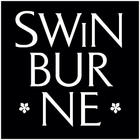Bachelor of Engineering (Honours) / Bachelor of Science
Bachelor of Engineering (Honours) / Bachelor of Science
The Bachelor of Engineering (Honours) / Bachelor of Science combines technical expertise in an engineering field of your choice with skills and knowledge required to work in a range of professional scientific environments. Complete core units in your first year to assist in selecting majors in engineering and science. Obtain…
Categories
COURSE DESCRIPTION
The Bachelor of Engineering (Honours) / Bachelor of Science combines technical expertise in an engineering field of your choice with skills and knowledge required to work in a range of professional scientific environments.
Complete core units in your first year to assist in selecting majors in engineering and science. Obtain theoretical and practical engineering knowledge by participating in workshops and industry projects to prepare for roles in your chosen field across a range of industries.
Build up your CV with real industry experience while you study through our Work Integrated Learning programs, which are a guaranteed part of all our bachelor degrees and can include placements, internships or industry-linked projects. In this double degree, you’ll apply your learning in eleven project units (one per semester for engineering and one per year for science) in professionally focused, industry-linked projects.
Choose your majors
Majors for Bachelor of Engineering (Honours):
Biomedical, Construction, Electrical and Electronic, Mechanical, Product Design, Robotics and Mechatronics, Software, Biomedical
Majors for Bachelor of Science:
Applied Mathematics, Biochemistry, Biotechnology, Chemistry, Environmental Science, Physics
Course structure
Successful completion of the Bachelor of Engineering (Honours) / Bachelor of Science requires students to complete units of study to the value of 500 credit points. All units of study are valued at 12.5 credit points unless otherwise stated.
Course learning outcomes
Students who successfully complete the Bachelor of Engineering (Honours) will be able to:
- apply coherent and advanced knowledge of the chosen major in engineering in diverse contexts and applications using critical thinking and judgement
- apply knowledge of research principles and methods to plan and execute a piece of research with some independence, as preparation for research higher degrees
- apply problem solving, design and decision-making methodologies to identify and provide innovative solutions to complex problems with intellectual independence
- apply abstraction, mathematics and engineering fundamentals to the analysis, design and operation of a model, using appropriate engineering methods and tools
- communicate proficiently in professional practice to a variety of audiences, function as an effective member or leader of a diverse team, and use the basic tools and practices of project management within project work
- reflect on and take responsibility for their own learning and self-management processes, and manage their own time and processes effectively by regularly reviewing of personal performance as a means of managing continuing professional development and lifelong learning.
Students who successfully complete the Bachelor of Science will be able to:
REQUIREMENTS
Completion of Australian Year 12 or equivalent.
English language requirements
Satisfactory completion of one of the following:
- Swinburne’s English for Academic Purposes (EAP 5 Advanced level) with overall 65%, all skills 65%
- minimum IELTS overall band of 6.0 (Academic Module) with no individual band below 6.0
- TOEFL iBT (internet-based) – 64 (no less than 13 in reading, 12 in listening, 18 in speaking, 21 in writing)
- Pearson (PTE) minimum score of 50 (no communicative skills less than 50)
- C1 Advanced: 169, no band less than 169
- any other equivalent assessment of English language proficiency.
EDUCATIONAL INSTITUTION
Swinburne University of Technology is a public university based in Melbourne- that is among the top 3% of universities in the world. The University focuses on science, technology and innovation and offers courses well recognised by professional organisations. The Good Universities Guide 2016 awarded the University five stars for both graduate satisfaction and generic skills and four stars for teaching quality. It also features in the top 200 ranked universities in the QS Graduate Employability Rankings; and enjoys close ties with industry- providing students with invaluable workplace experience.




